Israel’s Water Resource Ethic: More With Less
Desert life nurtures respect for water.
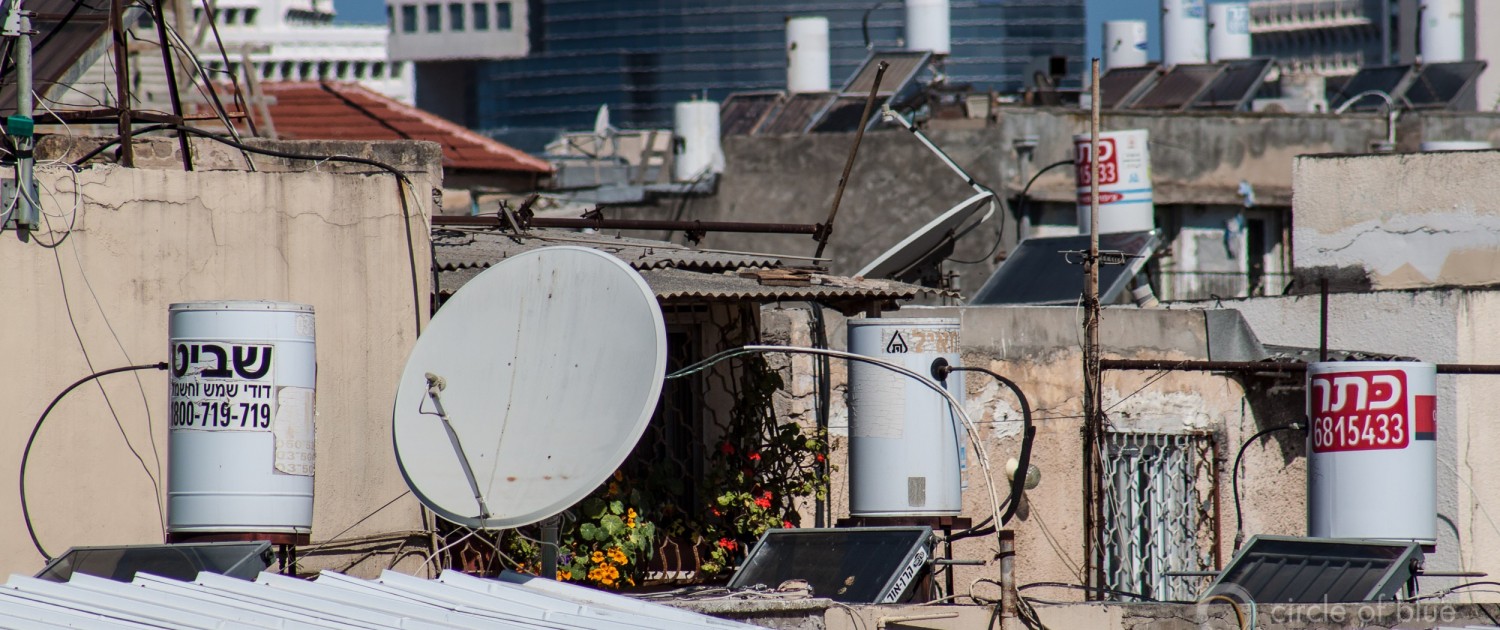
In 1980, Israel’s parliament passed a law requiring all residential buildings less than nine stories tall to install solar water heaters. The heaters speckle city skylines and have cut national electricity use by 4 percent. Photo © Brett Walton / Circle of Blue
By Brett Walton, Circle of Blue
SEDE BOQER, Israel — The restaurant patio at Kornmehl Farm, a family homestead on the northern edge of the Negev desert, is a place for reflection as well as fine food.
While reclining on divans shaded by fluorescent awnings, and eating goat cheese prepared by owners Anat and Daniel Kornmehl, diners can gaze across the wadi at rows of mud brick that protrude from the hillside.
The bricks are ancient remnants of farm terraces built during the Middle Bronze Age, some 5,000 years ago. The terraces, a technical adaptation to a harsh climate, anchored the soil against erosion and trapped rainwater. In a windy region with less than 100 millimeters (4 inches) of rainfall annually, the terraces served as a life-changing benefit.
The modern state of Israel, home to 8 million people, is the intellectual descendant of those early farmers. The country founded with a mission to make the desert bloom is a world leader in the efficient use of water. It reuses 85 percent of its wastewater, primarily for irrigation. No other country can compare; Spain, in second place, is at about 20 percent.
Israel also is a center of innovation. Drip irrigation, which slashes water use in agriculture while helping branches to heave with fruit, was developed in the 1960s at Kibbutz Hatzerim, a communal farm a few miles to the north of Kornmehl. Likewise, membrane desalination, the leading technology for separating salt from seawater, was nurtured by researchers working in the Negev.
Today, researchers and startup companies in Israel are working on a number of developments: sensors and computer software to identify leaky water pipes, membrane designs that require less energy to purify water, distilling pure nitrate from manure so that fertilizer can be applied in micro-doses, producing electricity from wastewater treatment, uniting aquaculture and agriculture in order to get a second use from the water. The list of ideas to improve efficiency is long.
One puzzling aspect of Israel’s water use, though, is in energy production, typically a nation’s second largest consumer of water next to agriculture. Israel relies on water-consuming fossil fuels despite its access to ample supplies of largely undeveloped solar energy. The sun in Israel is relentless. Nonetheless there are bright marks. The Knesset, Israeli’s parliament, passed a law in 1980 requiring solar water heaters for new residential buildings less than nine stories tall, a move that ended up cutting national electricity use by 4 percent.
I ask Amit Gross, my dinner companion, why Israel has done so well with water. Gross, an associate professor in the Department of Environmental Hydrology and Microbiology at Ben-Gurion University of the Negev, studies water recycling and waste management systems for farming. He has a ready answer.
“Stress,” he says. “The stress and pressure of the physical environment.” Israel, he said, also has a much stronger water ethic than most countries, which led to attention and investment at the highest political levels. Maximizing the benefit of every drop is a matter of national security.
“We have to stop talking about waste and start considering it as a resource,” Gross said earlier in the day as he was showing a group of journalists the water recycling tanks in his research lab.
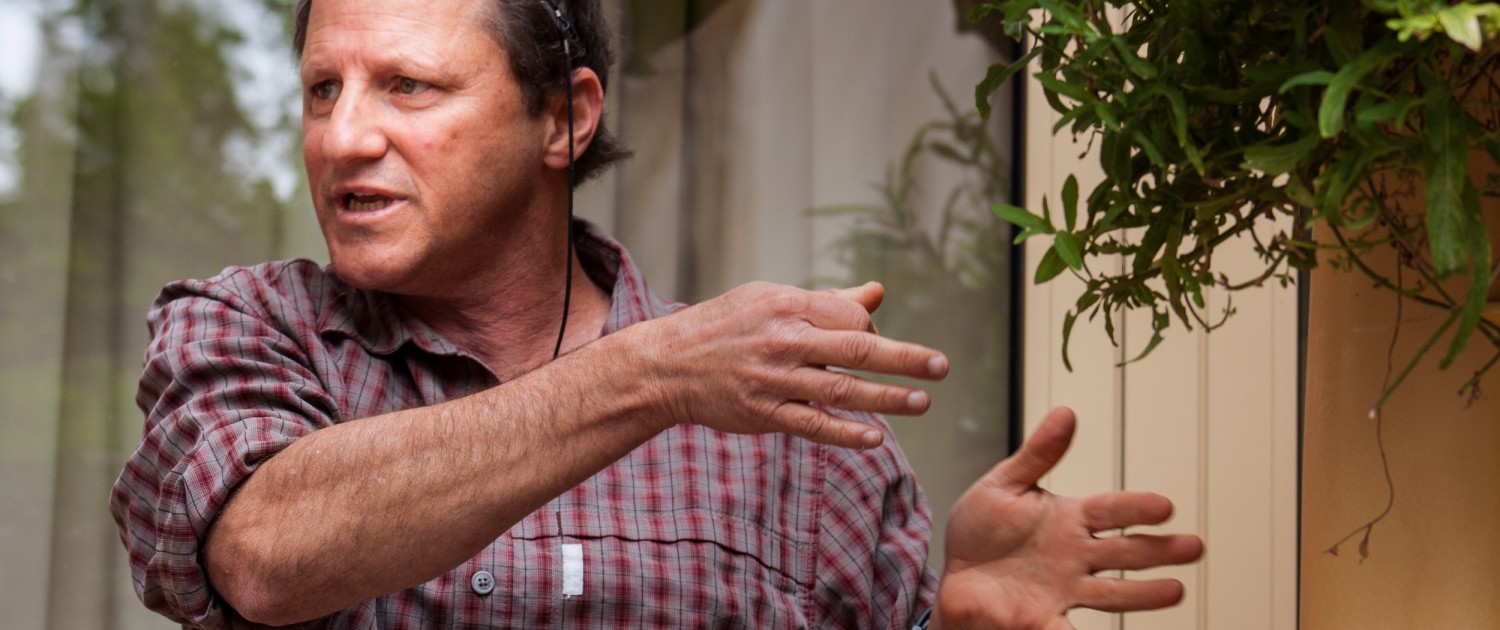
Amit Gross, an associate professor at Ben-Gurion University of the Negev, explains a system that uses shower water to irrigate household gardens. Photo © Brett Walton / Circle of Blue
The founding myth of Israel is that its leaders carved its future with few natural resources to draw from. Nearly half its land is desert and its main watershed, the Jordan River Basin, is far bigger in reputation than in reality. Finding water — and not wasting it — is a fundamental need.
“The only way to establish this nation was if we provided enough water everywhere,” said Noam Weisbrod, director of the Zuckerberg Institute for Water Research. “For this reason, Israel became a top model for water.”
The first step was borrowed from the American playbook — build a big canal system to move water from areas of relative surplus to areas of deficit; in Israel’s case a wetter north and a dry south. The National Water Carrier, built in 1964, is the largest infrastructure project in Israel. Its main branch stretches 130 kilometers (81 miles).
Then came recycling facilities such as Shafdan, which treats water from coastal cities and sends the product to the Negev, for irrigation. Shafdan treats 400,000 cubic meters per day from 2.5 million urban residents.
Desalination is the latest development, driven by visible and urgent water scarcity events.
A terrible drought in the 2000s made leaders realize the limits of their natural water supply. In those years Lake Kinneret, at the head of the Jordan River, approached a record low and further diversions from the lake were in doubt. Water levels in the Dead Sea, at the end of the Jordan River, also are in long-term decline because of water diverted into the National Water Carrier. The sea is dropping by about 1 meter per year. How to halt or reverse the environmental damage, not only in the Dead Sea but in other rivers in which development was prioritized over ecosystems, is one of the country’s top water policy questions.
Today, five big desalination plants on the Mediterranean and dozens of smaller units produce between 60 and 75 percent of the country’s municipal water supplies. By 2020, authorities expect desalination to supply all of the country’s municipal water. Sorek, the newest plant and the world’s largest reverse osmosis facility, opened in October 2013. Thanks to state-of-the-art design, it produces some of the least expensive desalinated water in the world, at $US 0.58 per cubic meter (264 gallons). Researchers, meanwhile, are attempting to push down the cost further with membranes that require less energy and produce more fresh water with the same input of salt water. Desalination accounts for 5 percent of national energy use.
Not only a guide post in the water sector, efficiency is a value at Kornmehl Farm, too. Anat and Daniel started the business 18 years ago, after working in the Ministry of Agriculture’s farm extension program where Anat taught the principles of goat farming. “We wanted to sell a product,” she said about the transition from educator to practitioner.
At first, they shipped their cheeses to stores in Tel Aviv and Jerusalem, an hour and a half by car, and even to Eilat, Israel’s southernmost city and more than two hours away. Eventually they thought the expense of time and fuel to be wasteful, Anat said.
So they downsized. A herd of more than 140 Nubian goats, which are bred for milk production, was thinned to about 40. They sold cheese at the farm to passersby and opened the restaurant in 2007 to draw in more traffic.
“We produce less but it’s more economical and environmental,” Anat explained. “We think it makes more sense.”
Travel funding for this story came from the Murray Fromson Media Mission, sponsored by American Associates, Ben-Gurion University of the Negev.
Brett writes about agriculture, energy, infrastructure, and the politics and economics of water in the United States. He also writes the Federal Water Tap, Circle of Blue’s weekly digest of U.S. government water news. He is the winner of two Society of Environmental Journalists reporting awards, one of the top honors in American environmental journalism: first place for explanatory reporting for a series on septic system pollution in the United States(2016) and third place for beat reporting in a small market (2014). He received the Sierra Club’s Distinguished Service Award in 2018. Brett lives in Seattle, where he hikes the mountains and bakes pies. Contact Brett Walton

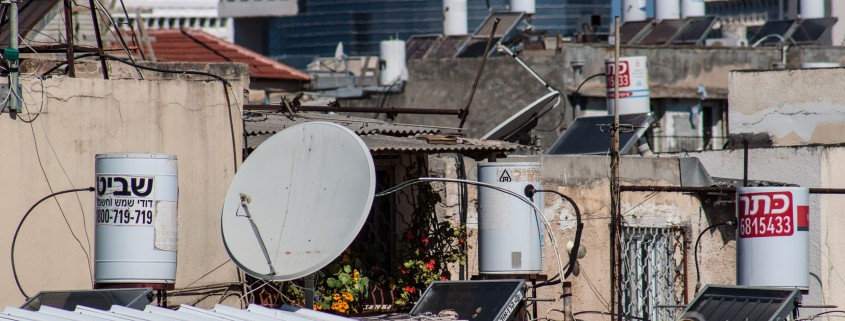

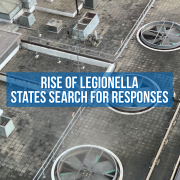
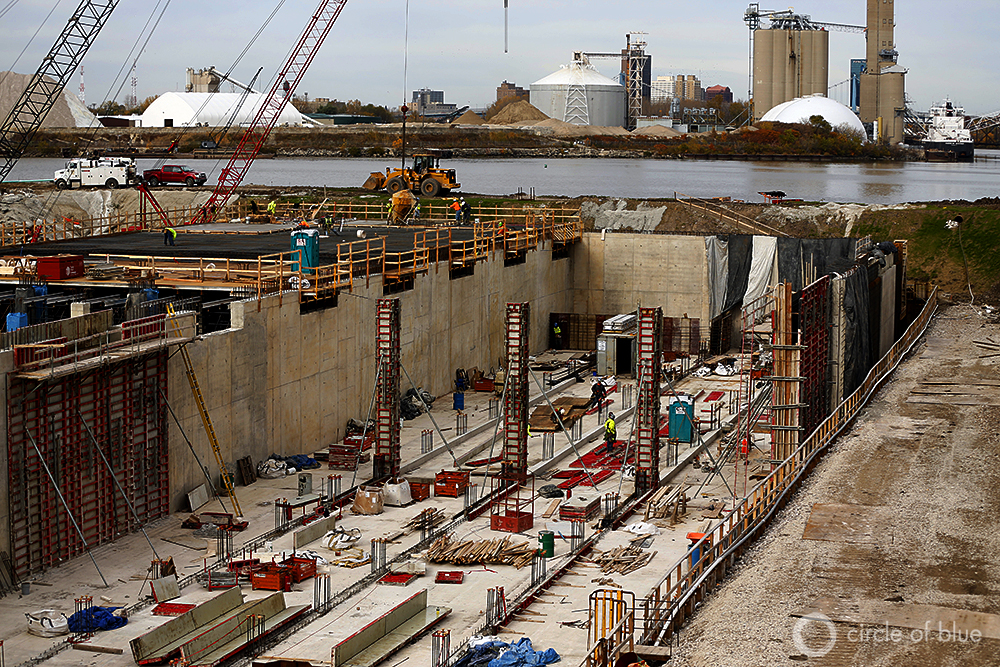

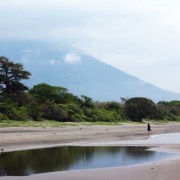
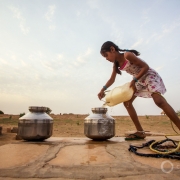


Leave a Reply
Want to join the discussion?Feel free to contribute!